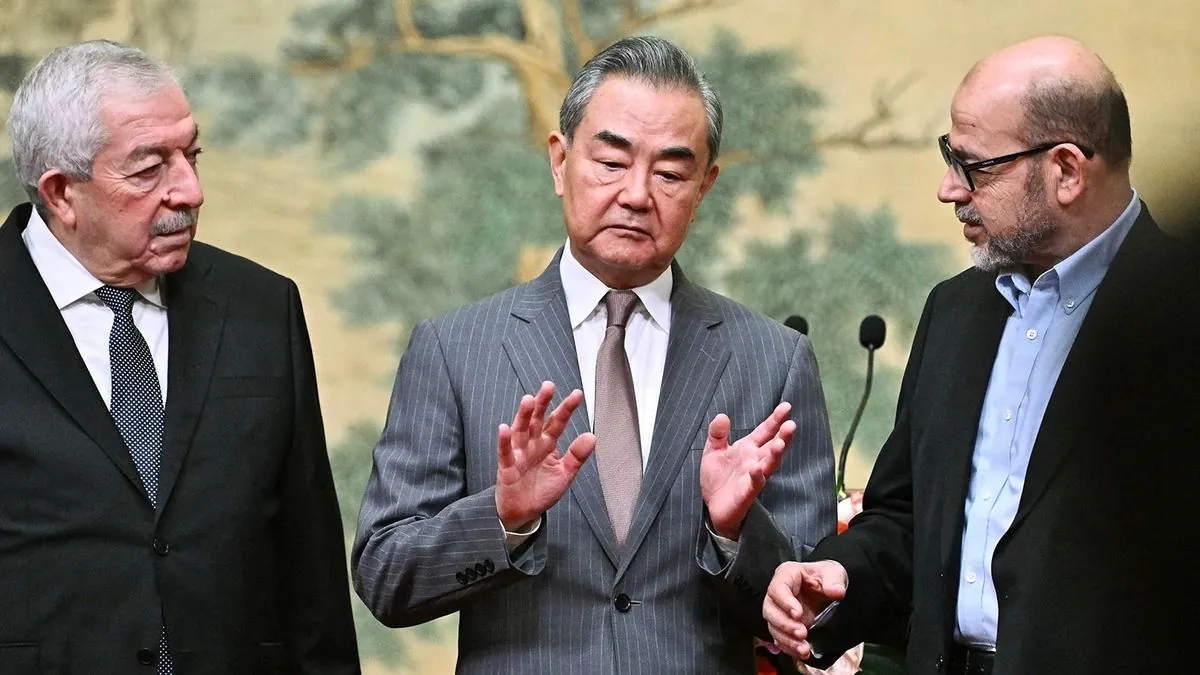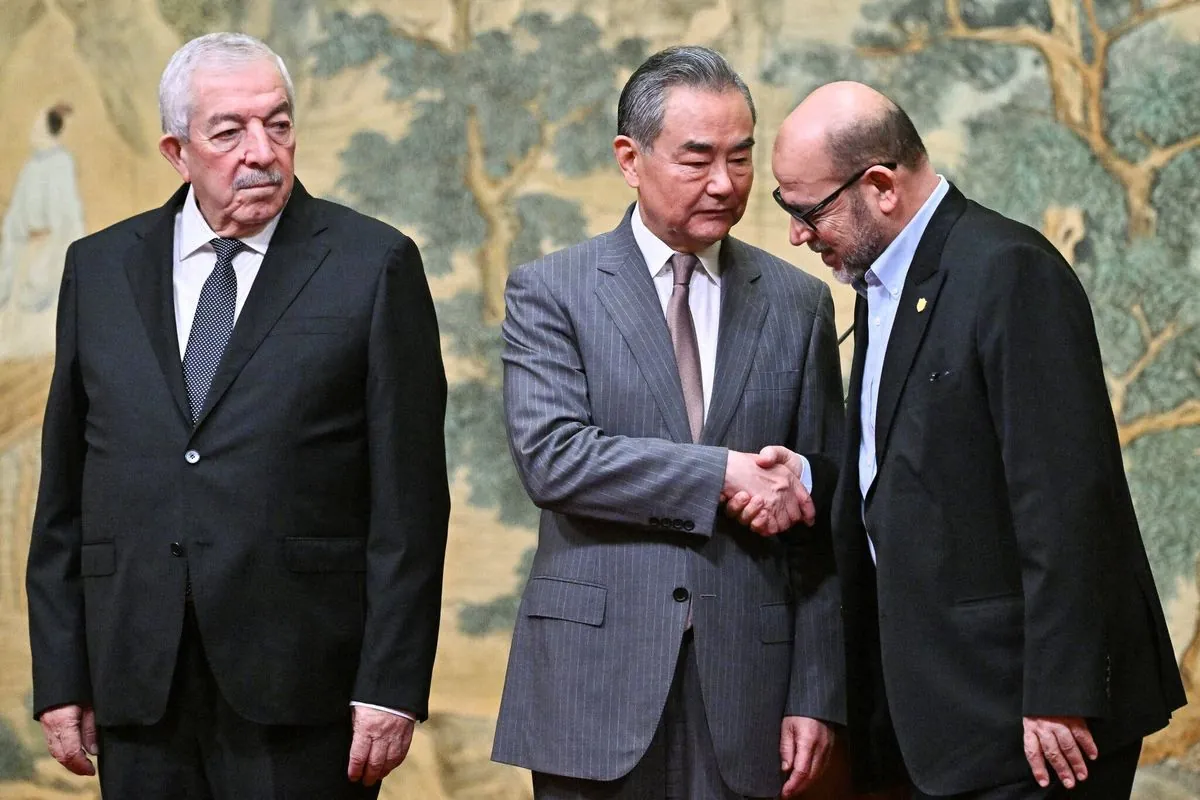Palestinian Factions Sign Unity Pact in Beijing Amid Skepticism
Palestinian groups, including Hamas and Fatah, agree to form interim government in China-brokered talks. Experts doubt effectiveness due to lack of implementation mechanisms and historical divisions.

On Tuesday, July 23, 2024, over a dozen Palestinian factions, including long-standing rivals Hamas and Fatah, convened in Beijing to sign a unity agreement. This diplomatic effort, orchestrated by China, aims to establish an interim government overseeing both Gaza and the West Bank. However, experts remain skeptical about its potential success.
The Beijing Declaration, as the agreement is known, marks China's latest foray into Middle Eastern diplomacy. Wang Yi, Chinese Foreign Minister, lauded the pact as a "historic moment for the cause of Palestine's liberation." Chinese state media promptly hailed the agreement as a significant contribution to global peace and stability.

This unity pact comes amid ongoing tensions between Hamas and Fatah, which have been at odds since their civil war in the mid-2000s. The agreement calls for the creation of a unified government and the groundwork for future elections. However, the lack of concrete implementation mechanisms raises doubts about its viability.
Khaled Elgindy, director of the Middle East Institute's program on Palestine and Israeli-Palestinian affairs, noted:
"I don't think there's a whole lot that's new here. There have been so many agreements, starting in Cairo in 2011. Not too long ago, there was the Moscow statement."
[[Expert opinion on the agreement]]
China's involvement in these talks reflects its growing ambition to expand its diplomatic influence in the Middle East. Beijing has long-standing ties with the Palestinians, recognizing a Palestinian state in 1988 and signing a strategic partnership with the Palestinian Authority in June 2023.
Ahmed Aboudouh, an expert at Chatham House, suggests that China's efforts send a powerful message to countries in the global south and across the Islamic world, positioning Beijing as an alternative to the Western-led order.
Israel, however, has rejected the agreement. Israel Katz, Israeli Foreign Minister, condemned the pact, stating that Hamas's rule will be "crushed." The ongoing conflict in Gaza and Israel's stance complicate the implementation of any unity government.
Despite skepticism, experts emphasize the importance of Hamas-Fatah reconciliation for effective governance in Gaza post-conflict. The United States views the Fatah-dominated Palestinian Authority as a potential governing body for Gaza after the war, a proposal Israeli Prime Minister Benjamin Netanyahu opposes.
As China continues its diplomatic efforts, including recent talks with Ukrainian Foreign Minister Dmytro Kuleba, the effectiveness of these initiatives remains to be seen. The Beijing Declaration, while a symbolic step towards Palestinian unity, faces significant challenges in bridging long-standing animosities and navigating complex regional dynamics.


































